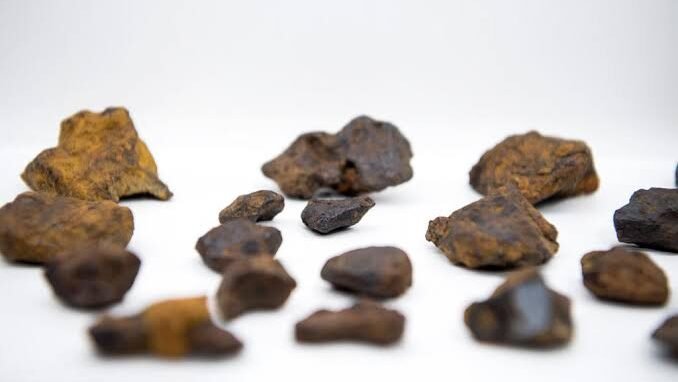In an extraordinary breakthrough in planetary research, scientists from the University of Bern have uncovered a freshly fallen meteorite in Oman. This discovery marks a significant scientific achievement, offering valuable insights into the mysteries of our solar system and the origins of life on Earth.
Oman: A Meteorite Hotspot
Oman has long been recognized as a prime location for meteorite discoveries, with its vast desert landscapes providing an ideal environment for finding these extraterrestrial rocks. The dry climate and lack of vegetation ensure that meteorites remain well-preserved and visible on the surface, making the Sultanate a treasure trove for researchers and collectors alike.
The latest meteorite discovery by the Bern researchers is especially remarkable because it represents a fresh fall—an event rarely witnessed or documented. Most meteorites discovered on Earth have been lying in the environment for decades, if not centuries, making this find an exceptional opportunity to study a pristine sample.

The Quest for the Meteorite
The University of Bern team had been conducting extensive fieldwork in Oman, focusing on regions where meteorites are most likely to be found. Armed with cutting-edge detection tools, including drones, ground-penetrating radar, and GPS mapping, the researchers systematically scanned the desert terrain for signs of recently fallen meteorites.
The breakthrough came when the team identified unusual markings on the desert surface—a telltale sign of a meteorite impact. Upon further investigation, they unearthed a dark, dense rock unlike any of the surrounding geological formations. Initial tests confirmed the object’s extraterrestrial origin, marking the culmination of years of meticulous research and exploration.

A Window Into the Past
Meteorites are often referred to as “time capsules” of the solar system. These fragments of asteroids, comets, or even other planets carry within them invaluable clues about the formation of celestial bodies and the chemical composition of the early solar system.
The freshly fallen meteorite discovered in Oman is of particular scientific interest because it has not yet been exposed to the Earth’s environment for an extended period. This means it has been preserved in its original form, free from contamination by terrestrial elements such as water, soil, or microbial activity.
The researchers believe this meteorite could hold critical data about the building blocks of planets, the origins of water, and potentially even the organic molecules that led to the development of life. Early analysis suggests the meteorite could belong to a rare class of carbonaceous chondrites, which are known to contain organic compounds and water-bearing minerals.
Oman’s Role in Advancing Space Science
Oman’s unique geography and climate have made it a global focal point for meteorite research. Over the years, the Sultanate has hosted numerous international teams of scientists, all drawn to its vast deserts in search of extraterrestrial materials.
This latest discovery further underscores Oman’s importance as a hub for space science and planetary exploration. The government’s commitment to preserving and facilitating research in this field has enabled discoveries that contribute to humanity’s understanding of the universe.
Moreover, Oman’s collaboration with international institutions, such as the University of Bern, highlights the global nature of scientific exploration. These partnerships not only advance research but also foster knowledge-sharing and innovation on a worldwide scale.
The Broader Impact of the Discovery
Beyond its scientific significance, the meteorite discovery has captured the imagination of the global community. It serves as a reminder of humanity’s enduring curiosity about the cosmos and our quest to unravel its secrets.
The meteorite will undergo detailed analysis at the University of Bern’s laboratories, where advanced techniques such as isotope analysis, X-ray diffraction, and electron microscopy will be used to decode its composition. The findings are expected to contribute to multiple fields, including planetary science, geology, and astrobiology.
The discovery has also sparked interest among educators and science enthusiasts. Plans are underway to exhibit the meteorite in Oman and Switzerland, allowing the public to witness this remarkable artifact firsthand and inspiring a new generation of scientists and explorers.
Oman’s Contribution to Space Exploration
Oman’s involvement in space science is not limited to meteorite research. The Sultanate is increasingly becoming a regional leader in space exploration, with initiatives focused on satellite technology, space education, and collaborations with international space agencies.
The discovery of the meteorite further strengthens Oman’s reputation as a contributor to the global scientific community. It also highlights the importance of investing in science and technology to unlock new opportunities for growth, innovation, and international collaboration.
Conclusion: A Celestial Gift
The freshly fallen meteorite discovered in Oman is more than just a rock from space; it is a celestial gift that holds the potential to unlock profound mysteries of the universe. For the researchers from the University of Bern, it represents the culmination of years of dedication, innovation, and perseverance. For Oman, it reaffirms the country’s status as a vital player in advancing space science and planetary research.
As the analysis of this meteorite unfolds, the world eagerly awaits the insights it will reveal—insights that could reshape our understanding of the solar system, the origins of life, and our place in the cosmos. Oman’s role in this groundbreaking discovery is a testament to the power of collaboration, exploration, and the unyielding human spirit to reach for the stars.
Do follow Uae stories for more Updates
Solar Energy Becomes the Fastest-Growing Power Source in the EU in 2024














